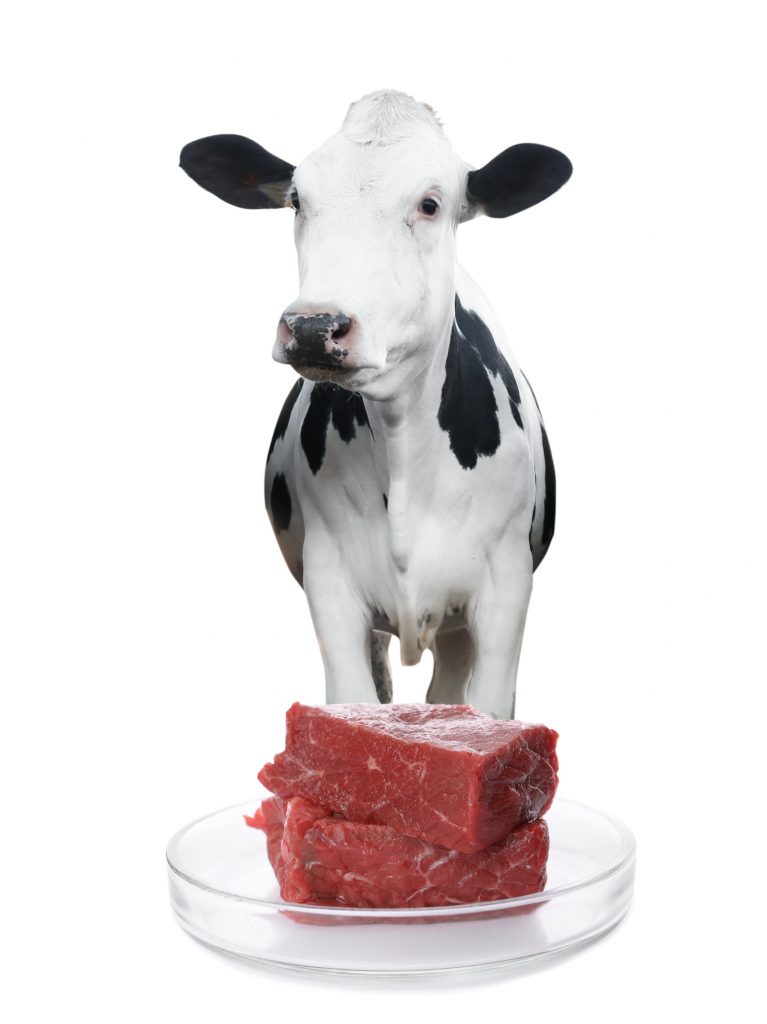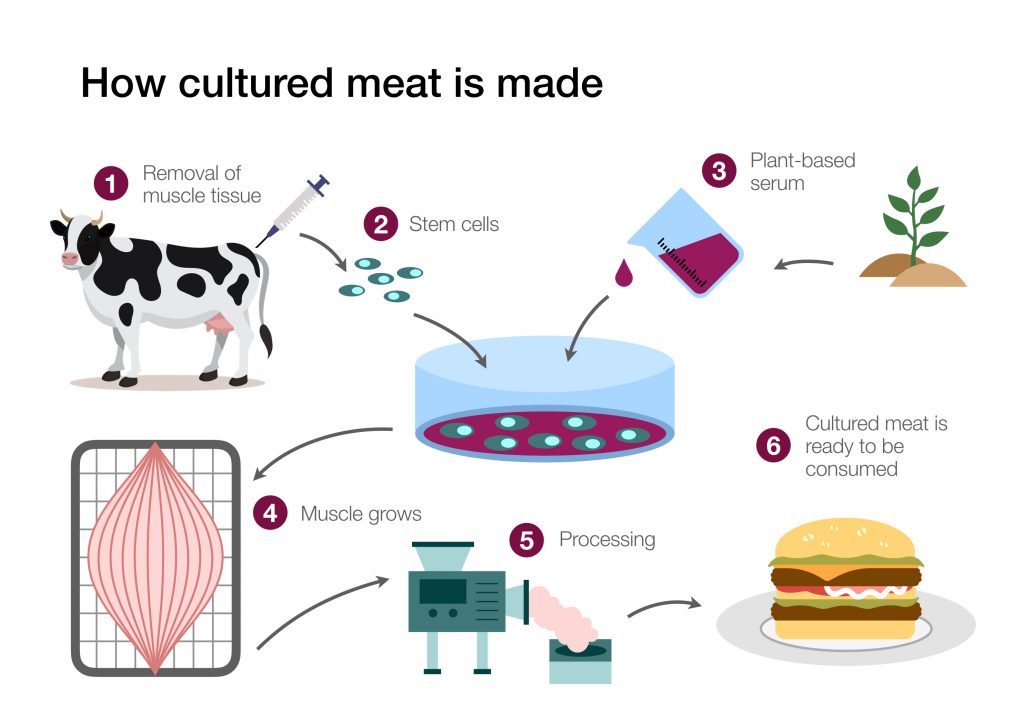
Cultivated meat is an alternative to conventional meat. It is produced from in vitro cell cultures and does not rely on the raising of animals therefore offering environmental benefits (Rosenfeld & Tomiyama, 2022). Two of the most notable benefits of cultivated meat are reduced water and fewer greenhouse gas emissions (Rosenfeld & Tomiyama, 2022).

Cultivated meat is a product of cellular agriculture produced using tissue-engineering technology where the muscle cells of animals are cultured in a bio-reactor independent from the animal (Ruzgys & Pickering, 2020) .
By comparison, fermentation-based cellular agriculture does not use any tissue from a living animal, and has typically been genetically modified through the addition of recombinant DNA (Ruzgys & Pickering, 2020).
Participants are invited to volunteer to participate in the research study by clicking on the link below to provide anonymous survey data stored on Survey Monkey.
Survey – Would you eat a burger made in a petri dish?
https://www.surveymonkey.com/r/LYX7C77
Please note by completing the survey questions you are consenting to participate in research. Responses to the survey will not be able to be withdrawn after submitted to Survey Monkey.

January 2023, UVic Undergraduate Student Campus Survey
Tony Heesterman, Executive Chef at University of Victoria believes using cultured meat in recipes is a more sustainable and more humane approach but that it is still many years before cultivated meat is available from Canadian companies.
“The first step for us would be testing and tasting them in our recipes”
Tony Heesterman, Executive Chef, University of Victoria
References
Rosenfeld, D. L., & Tomiyama, A. J. (2022). Would you eat a burger made in a petri dish? Why people feel disgusted by cultured meat. Journal of Environmental Psychology, 80, 101758. https://doi.org/10.1016/j.jenvp.2022.101758
Ruzgys, S., & Pickering, G. J. (2020). Perceptions of cultured meat among youth and messaging strategies. Frontiers in Sustainable Food Systems, 4, 122. https://doi.org/10.3389/fsufs.2020.00122
